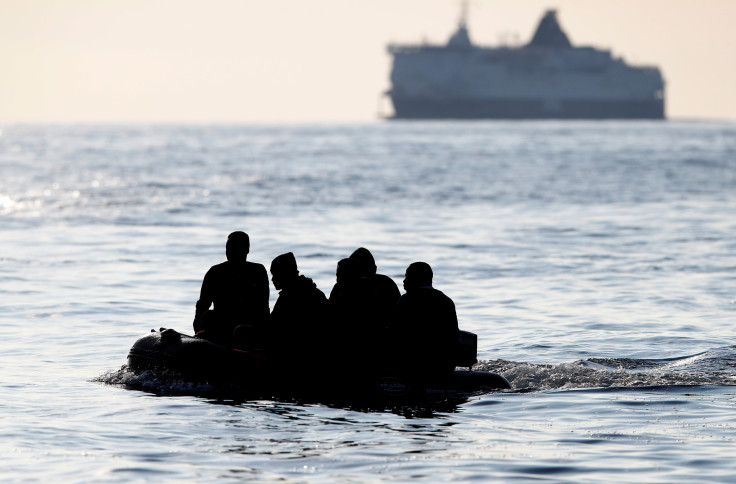'They Treat Us As If We Are Nothing' – Asylum Seekers Respond To Emergency Rwanda Treaty
Asylum seekers respond to Sunak's relentless emergency Rwanda policy after it was passed by an overall majority vote on Wednesday.

This week, Prime Minister Rishi Sunak was met with a Tory Party rebellion after 60 MPs voted in favour of amendments that would toughen up the emergency Rwanda legislation.
Although the rebel MPs threatened to vote against the entire Rwanda scheme when it had its vital third reading on Wednesday, Sunak succeeded in getting his deportation policy through the House of Commons without amendments being made.
The bill was approved by 320 votes to 276 votes and allowed the Prime Minister to avoid a humiliating defeat that would have threatened the Conservative's outcome at the upcoming general election.
The Rwanda bill comes as part of Sunak's relentless "stop the boats" campaign and sets out to deport all undocumented asylum seekers to the East African nation.
In September 2023, official data that highlights the current migrant crisis showed a huge 45,081 irregular arrivals to the UK via the English Channel.
Since 2020, more than 100,000 people have fled persecution and arrived in the UK using the "illegal" route.
With many deaths going undetected, the International Organisation for Migration predicts that, over the past five years, at least 64 asylum seekers have drowned in the English Channel.
The mounting number of undocumented arrivals has put pressure on the Tory government since it pledged to slash legal migration and reduce net migration figures.
One asylum seeker from Egypt, who has had his livelihood threatened by the emergency legislation passing, told reporters: "Of course, we asylum seekers are just being used by the politicians in this conflict between them over how to manage their immigration policy."
Speaking of the third reading discussion that was held in parliament this week, the anonymous person added: "We are just numbers to the politicians arguing over what to do with us in parliament last night. Our fate and our souls do not matter to them. They treat us as if we are nothing. We want a feeling of stability and a sense of homeland but will not be able to get this in Rwanda."
"This policy is unfair and intimidating for us. I woke up this morning expecting to be deported to a place that will not be safe for us," they added.
Another asylum seeker, from the Middle East, recognised how the Rwanda deportation plan violates the human rights of migrants who may have already fled conflict and persecution.
The asylum seeker, who has already received a letter that warns of deportation to Rwanda, said: "The Home Office should be treating people fairly, like human beings. I did not expect to be treated as a political football. The politicians have ignored our voices. I hope the Rwanda plan will never happen. It is not acceptable and it is not normal."
"I came here because I thought this was a country where I could have freedom of speech. The Rwanda policy has changed all that. Threatening us with Rwanda is a form of psychological torture," they continued.
Last month, Sunak saw his emergency Rwanda Treaty pass with an overall majority vote in the House of Commons.
The emergency legislation has since been met with much controversy, considering the Tory leader was told by both the Court of Appeal and the Supreme Court, that his anti-migrant scheme was 'unlawful'.
Despite also being told that the move to "stop the boats" would violate international human rights laws and threaten the livelihood of oppressed migrants, Sunak has proudly dubbed the new policy "the toughest ever anti-immigration law".
In a bid to become Prime Minister of the UK, Labour Party Leader Keir Starmer named the Rwanda policy an expensive "gimmick" that "will not work".
Instead, the left-wing Labour Party have been preparing an "alternative" policy and "detailed plans" for a potential offshoring scheme that would allow asylum seekers to have their applications processed elsewhere.
According to Starmer, unlike the Rwanda policy, Labour's potential scheme would align with international human rights laws and act as a long-lasting solution to the current migrant crisis.
© Copyright IBTimes 2024. All rights reserved.






